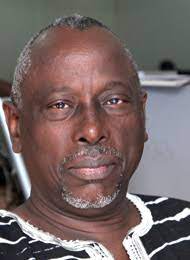There is no doubt that the media in Rwanda is growing in numbers, speed and quality. In the last few months we have seen the birth of new publications like The Chronicles and Igihe that provide readers with a choice of what to read.


There is no doubt that the media in Rwanda is growing in numbers, speed and quality. In the last few months we have seen the birth of new publications like The Chronicles and Igihe that provide readers with a choice of what to read.
KFM radio, from the Nairobi-based Nation Media Group, has entered the already crowded but popular FM radio scene. Obviously there is always room for one more. And already this new entrant is drawing a huge number of listeners.These developments follow reforms in the media law such as the recently passed freedom of information act and robust national debate on such things as defamation and removing regulation of the media from the Media High Council and giving the function to the media.The journalists’ association also changed leaders through one of the most peaceful elections. All these should have caught the public imagination and made the media scene in Rwanda very exciting. But they have not. There are several reasons for this.First, like most things in Rwanda, growth, even if it is phenomenal, is done without much fuss. The Rwandan way is to get things done without any fanfare. In the modern Rwanda, there is no place for boasting. Well, except for a few of us who have taken it upon ourselves to do the bragging on behalf of the real actors.Second, the recent developments have disarmed (one would hope, disabled) the dishonest (and dishonourable) critics who constantly portray Rwanda as an enemy of free media. Now they cannot find fault with the law or the general environment within which the media operates. They cannot complain that the state controls the media when it is clearly disengaging from regulation. The new publications and radio station are also privately-owned. But they also offer sober, balanced and objective reporting.And so because they are not rabidly anti-President Paul Kagame, sensational or the sort that throw mud at everything the government does, they have not been received with open arms (but actually ignored) by the so-called watchdogs of media freedom.Current developments in the media are typical of its history in Rwanda. The earliest media in this country, except radio, was independently owned. The oldest newspaper – Kinyamateka – was started and is still owned by the Catholic Church. One might argue, and with justification, that for long periods of the country’s history, the interests of both so converged that they were practically inseparable.That may have been so. Still, the paper can be said to have been independent.But that is as far as the independence, or indeed, existence of any media went. In the colonial and post-colonial periods, Rwanda lacked a vibrant, vigorous and independent media. Surprisingly (perhaps really not so) there were no adverse criticism of this state of affairs from the guardian (better to say impostor) angels of press freedom – Reporters without Borders, Freedom House and kin. Which calls into question their motives or sanity.The staid, unremarkable media climate in Rwanda was broken by the shrill, hate-filled and unashamedly partisan publications of the early 1990s. Following the birth of multi-party politics, political pamphlets and propaganda sheets were passed off as genuine journalism. Hate mongers, rabble-rousers and back alley bullies using abusive and inflammatory language were celebrated as fearless fighters in the war for freedom of expression – not only by their local handlers, but also by their foreign puppet masters.Understandably there was never any condemnation from the angels (another word would be better, but I was taught to be charitable even to those who do me wrong) from Paris and New York for whom destruction equals freedom, especially when it happens in such places as Rwanda. Actually the angels who possess a perverse sense of mirth, cheered them on to greater frenzy of viciousness.A semblance of open journalism may be said to have started after 1994. But even this developed in a skewed manner – for obvious reasons.There was a lack of tradition of responsible journalism to follow. It was a situation of anything goes. And so, houseboys turned into editors overnight (that’s what the Exposer says) as did other people with severe language and intellectual deficiencies.Obviously, it was too much to expect such people, propelled out of their depth into unfamiliar space, to tell the difference between fact and rumour, abuse and fearlessness, or fair comment and defamation.But they were loudly touted as frontline fighters for freedom of expression. Egged on by their sponsors, they outdid themselves, like a faithful dog in pleasing the master, and committed more outrage. Eventually when tail wagging and barking at the sound of the master’s voice was no longer enough to earn praise and bread, they went to sit at his feet to get a more appreciative pat on the head and more food in the bowl.Now this is changing. There is real movement in the development of the media which leaves no room for other people’s poodles here. Everyone, especially the watchdogs, should be happy. But no, they won’t. We are building, not destroying, and that’s bad for them. So the best they can do is choosing not to see. But the choice to see or not to see is not the question. The question is that there is something to see. And it is a fact and pleasing. That’s all that matters. Blog: josephrwagatare.wordpress.com. Twitter:@jrwagatare


